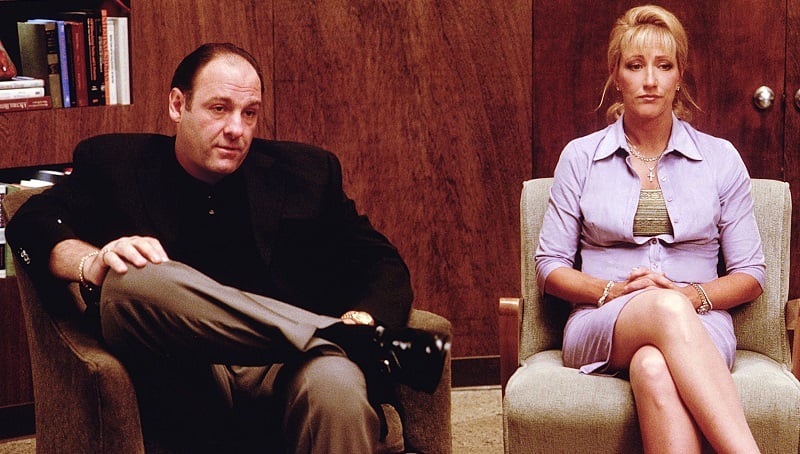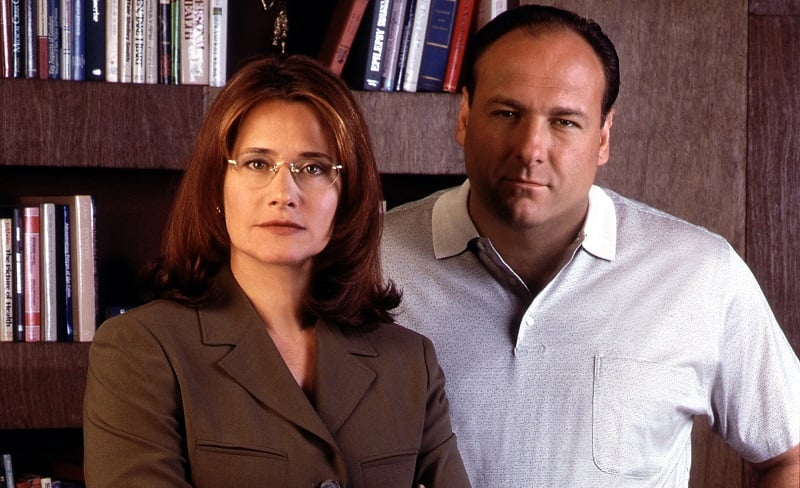Have Real Mob Bosses Ever Seen Psychiatrists Like Tony Soprano?
Anyone who has been spellbound watching The Sopranos will eventually start to wonder about things. For starters, is it possible for a mobster to actually be nicknamed “Big Pussy”? And have there even been gay mafiosos discovered in a crime family’s ranks?
In fact, real New Jersey crime families featured both of in the past half-century. The enforcer known as Pussy (a skilled cat burglar) worked for “Tony Boy” Baiardo, while the DeCalvalcante syndicate once had a homosexual boss causing issues for the family’s image in The Garden State.
These intriguing parallels to actual mob happenings soon lead to the next question: Has a mob boss even seen a psychiatrist like Tony Soprano (James Gandolfini) did on the HBO show? Once again, the answer is yes, and there are at least two known instances in which the head of a crime family turned to a shrink. In fact, one ran a Jersey outfit.
Frank Costello’s Park Avenue psychiatrist

By the 1950s, Frank Costello was an elite mobster known as “the Prime Minister of Organized Crime.” Earlier in his career, he’d been consigliere to Vito Genovese following the establishment of Vito’s eponymous crime outfit (one of New York’s original Five Families).
But the media got hold of one embarrassing detail about Costello’s private life after decades in the mob’s upper echelon. It turned out he’d been seeing a Park Avenue shrink. Later attempts on Costello’s life probably had something to do with that revelation.
After he took a bullet in the head during a 1957 assassination attempt, Costello stepped away from active duties in the mob. He managed to die of natural causes at the age of 82 (in 1973) after a long and profitable career in the underworld.
So it definitely is possible for a mob boss to see a psychiatrist and live. However, he’d better be connected like Costello. Or run his own clan and keep it quiet like Tony Boy Boiardo.
Boiardo’s West Orange, NJ shrink

While Costello operated in the era of The Godfather, Boiardo’s days as the head of his Jersey racket came in the next generation. On the 20th century timeline, that would have placed him just ahead of The Sopranos (i.e., in Johnny Boy Soprano’s generation).
According to a 2010 article by Richard Linnett, Boiardo turned to a West Orange shrink named Dr. William Furst to deal with his anxiety. Furst was “a war hero” who’d fought in the Battle of the Bulge, Linnett wrote, and Boiardo “took his treatments seriously.”
If you’re keeping score at home, that means there was no Dr. Melfi crossing her legs in the office and delivering her treatment in a throaty voice. However, at least two prominent mob bosses — one Genovese, one Tony Boy from Jersey — paid regular visits to psychiatrists in the peak mob era.
The more you read about the mob activity in the 1960s around Newark, the more you realize how clever David Chase was when creating his classic mob series.
Check out The Cheat Sheet on Facebook!


